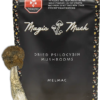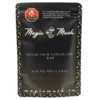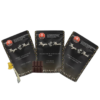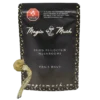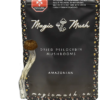Psychedelic Effects on Autoimmune Diseases: Can Psilocybin and Microdosing Help?
Autoimmune diseases are among the most perplexing and frustrating medical conditions to manage. Unlike infections or injuries, where the culprit is an external threat, autoimmune disorders arise when the body mistakenly attacks itself.
Conditions like rheumatoid arthritis, lupus, multiple sclerosis, Crohn’s disease, and psoriasis can cause chronic pain, fatigue, and widespread inflammation, making daily life a struggle for millions of people.
Conventional treatments—such as steroids, immunosuppressants, and biologics—often focus on suppressing the immune system to prevent further damage.
While these medications can help manage symptoms, they often come with significant drawbacks, including severe side effects, high costs, and the risk of long-term dependency.
This has led many patients to seek alternative solutions, hoping for a way to reduce inflammation, manage symptoms, and improve their quality of life without compromising their overall health.
One such alternative that has been gaining attention in recent years is psychedelic therapy, particularly the use of psilocybin—the active compound in magic mushrooms.
Emerging research suggests that psychedelics could modulate the immune system, reduce chronic inflammation, and help regulate the body’s stress response. Scientists have also found a link between mushrooms and Parkinson’s disease.
Unlike traditional medications, which primarily target symptoms, psilocybin appears to work on a deeper level, influencing brain chemistry, promoting neuroplasticity, and potentially restoring balance to an overactive immune system.
Could microdosing psilocybin or undergoing full-dose psychedelic therapy offer real relief for autoimmune sufferers?
That’s the big question researchers, medical professionals, and individuals with autoimmune disorders are beginning to explore.
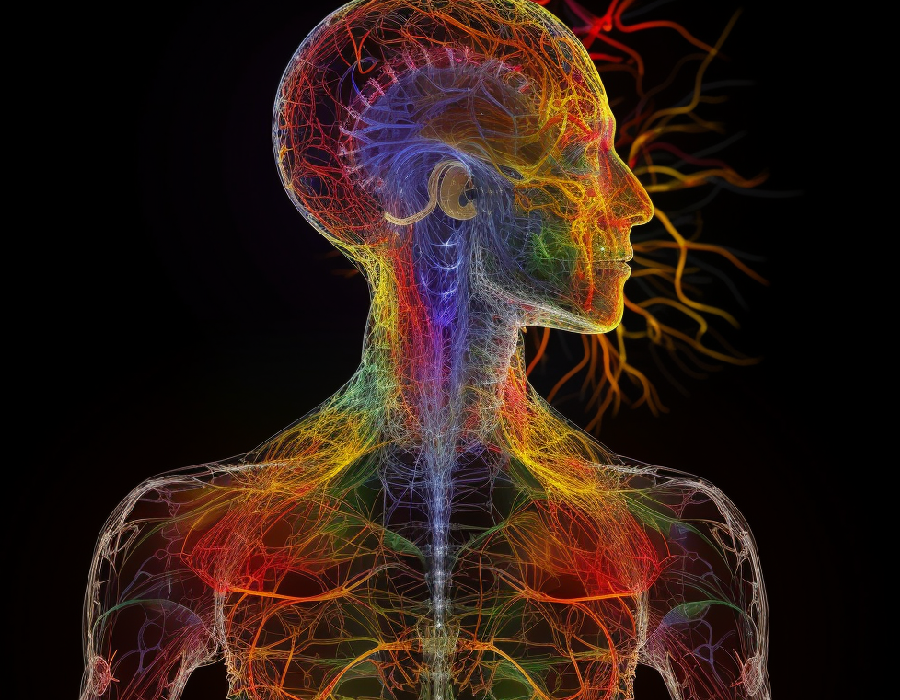
For years, I lived in a cycle of exhaustion, chronic pain, and endless doctor’s appointments, trying to manage an autoimmune condition that seemed determined to take over my life.
Some days, I would wake up feeling like my joints were on fire, my muscles aching as if I had just run a marathon, despite barely moving from bed.
Fatigue became my constant companion, making even the simplest tasks—like grocery shopping or meeting friends for coffee—feel impossible.
The medications I was prescribed helped in some ways but left me with brutal side effects: weight gain, brain fog, nausea, and a general feeling of being disconnected from myself.
I found myself asking, is this really the best modern medicine has to offer?
Desperate for alternatives, I started exploring holistic and natural approaches, trying everything from anti-inflammatory diets and meditation to acupuncture and herbal supplements.
While some of these strategies offered mild improvements, they weren’t enough to give me my life back. Then, one day, I stumbled upon a Reddit thread where people were discussing microdosing psilocybin to manage autoimmune symptoms.
At first, I was skeptical. I had never considered psychedelics as anything more than party drugs, let alone potential therapeutic tools.
But the more I read, the more intrigued I became. Could it be possible that something as unconventional as magic mushrooms could help calm my overactive immune system and ease my symptoms?
With cautious optimism, I decided to give microdosing a try. I started with a tiny dose of psilocybin—so small that I didn’t feel “high” or experience hallucinations, just a subtle shift in mood and energy.
At first, I wasn’t sure if it was working, but after a few weeks, I started noticing small but meaningful changes.
My pain levels became more manageable, my brain fog started to lift, and—perhaps most surprisingly—my emotional resilience improved.
The crippling stress and anxiety that often triggered my flare-ups began to subside, and with it, my symptoms became more stable. For the first time in years, I felt like I had some control over my health.
This experience led me down a rabbit hole of research into how psychedelics affect the immune system. Could there be something scientifically valid behind these personal success stories?
Was psilocybin truly capable of reducing inflammation, altering immune responses, and promoting overall healing?
That’s what this article will explore—diving into the science behind psychedelics and autoimmune diseases, the potential benefits of microdosing, and the limitations of current research.
Whether you’re someone struggling with an autoimmune condition, a curious skeptic, or simply interested in the intersection of psychedelics and health, this deep dive will shed light on an emerging and fascinating area of study.

How Psychedelics Affect the Immune System
The Mind-Body Connection in Autoimmune Diseases
Autoimmune diseases don’t just affect the body—they have deep ties to mental and emotional health.
Chronic stress and emotional trauma are known triggers for autoimmune flare-ups, and researchers have found that the nervous system and immune system are deeply interconnected.
This suggests that altered states of consciousness, such as those induced by psychedelics, could influence immune responses.
Many autoimmune patients experience an overactive stress response, which keeps cortisol levels elevated and contributes to inflammation.
Since psychedelics like psilocybin promote neuroplasticity and alter the way the brain processes emotions, they may help regulate stress and, in turn, calm the immune system.
Anti-Inflammatory Properties of Psychedelics
Inflammation is the driving force behind most autoimmune conditions, and some research suggests that psychedelics may have anti-inflammatory properties.
Psilocybin and LSD have been found to reduce cytokine activity, which plays a key role in immune system regulation.
Studies on depression and PTSD have already demonstrated that psychedelics reduce stress-related inflammation.
Since stress and immune dysfunction are closely linked, this raises the question: could psilocybin help reset the immune system in those with autoimmune diseases?
While more research is needed, early findings suggest that psychedelics might offer relief beyond just mental health benefits.
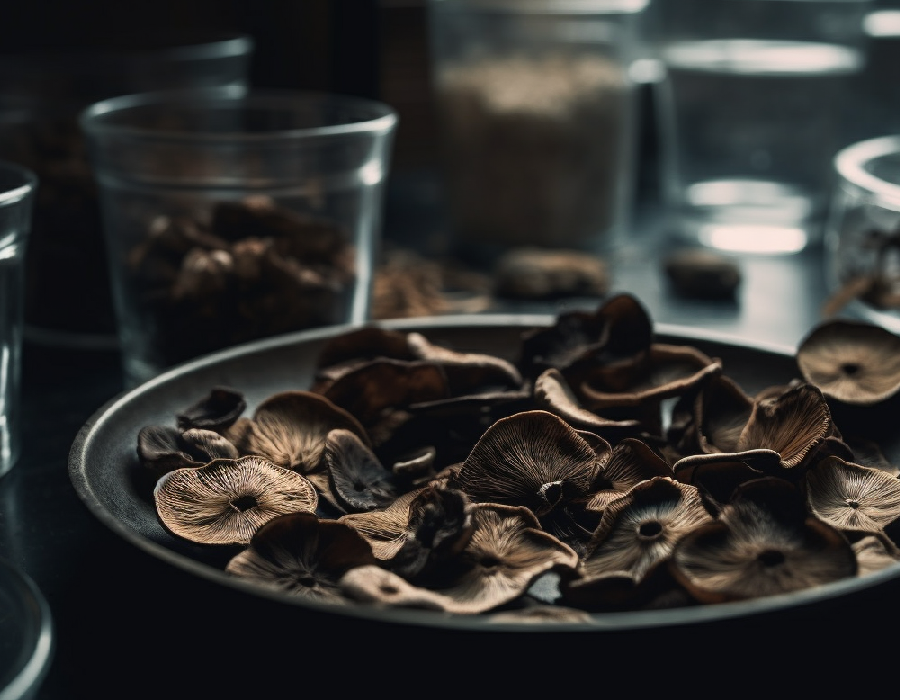
Microdosing and Autoimmune Conditions
Microdosing—the practice of taking small, sub-perceptual doses of a psychedelic substance like psilocybin—has gained significant attention for its potential therapeutic benefits.
Unlike a full-dose psychedelic experience, which can lead to profound perceptual and emotional shifts, microdosing involves consuming just enough of a substance to subtly influence brain function without causing hallucinations or significant alterations in consciousness.
Many people report that their microdosing impacted their learning, increased mental clarity, reduced their anxiety, and enhanced creativity.
However, emerging research suggests that microdosing may offer even deeper physiological benefits, particularly for individuals dealing with chronic illnesses, including autoimmune diseases.
Understanding Autoimmune Conditions
Autoimmune conditions are characterized by an overactive immune system that mistakenly attacks the body’s own tissues, leading to chronic inflammation and a wide range of debilitating symptoms. Conditions like rheumatoid arthritis, multiple sclerosis, lupus, Crohn’s disease, and psoriasis can cause persistent pain, fatigue, neurological dysfunction, and organ damage.
Traditional treatments often involve immunosuppressants, corticosteroids, or biologic therapies, which can help manage symptoms but also come with significant risks, including increased susceptibility to infections, long-term organ damage, and serious side effects such as weight gain, mood disturbances, and gastrointestinal issues.
Given these challenges, many patients have turned to alternative and integrative approaches, hoping to find a treatment that can modulate, rather than completely suppress, immune function.
Psilocybin’s Impact on the Immune System
One of the most compelling aspects of microdosing psilocybin for autoimmune conditions is its potential ability to regulate immune system activity rather than shutting it down.
Preliminary studies suggest that psychedelics, like the Aztec God strain, interact with serotonin receptors, particularly the 5-HT2A receptor, which is known to play a crucial role in both brain function and immune regulation.
Serotonin is commonly associated with mood and emotional regulation, but it is also deeply involved in immune system signaling.
Some research suggests that by influencing serotonin pathways, psilocybin may help reduce excessive immune responses, dampen inflammation, and restore homeostasis within the body.
This makes it a particularly intriguing option for conditions where immune system overactivity is the root cause of disease progression.
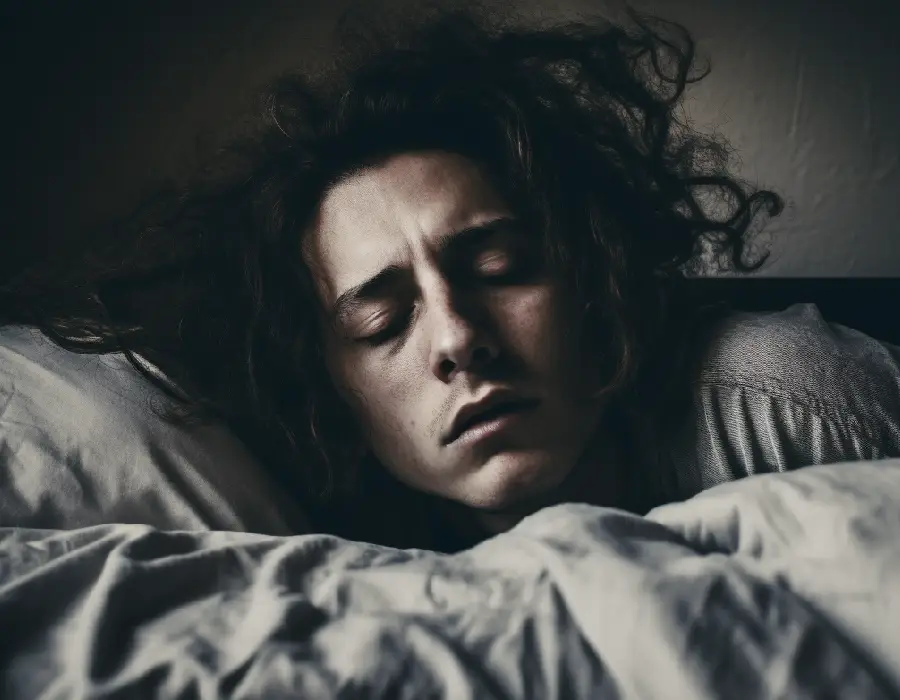
Stress, Autoimmune Flares, and the Role of Microdosing
Another key factor in autoimmune diseases is chronic stress. Stress plays a significant role in both triggering and exacerbating autoimmune symptoms, as it increases the release of pro-inflammatory cytokines, which can lead to heightened inflammation and worsened disease activity.
Many individuals with autoimmune conditions report that stress, anxiety, or emotional distress can trigger debilitating flare-ups. Microdosing psilocybin has been reported to enhance emotional resilience, reduce stress, and improve overall well-being, which in turn may help prevent or mitigate autoimmune flare-ups.
Some researchers believe that psychedelics may help recalibrate the body’s stress response, reducing the excessive production of stress hormones like cortisol, which are known to contribute to immune system dysregulation.
Neuroplasticity and Cognitive Benefits
Another promising mechanism through which microdosing may benefit autoimmune conditions is its impact on neuroplasticity.
Many autoimmune disorders, particularly those affecting the nervous system, such as multiple sclerosis, involve damage to neural pathways and disruptions in communication between the brain and body.
Studies on psilocybin and other psychedelics indicate that these substances can promote synaptogenesis, neurogenesis, and overall brain adaptability, which could help individuals with autoimmune-related neurological symptoms regain function and improve cognitive performance.
Some anecdotal reports suggest that people suffering from brain fog, fatigue, and neurological impairments related to autoimmune diseases have experienced cognitive improvements through microdosing, allowing them to think more clearly and maintain mental energy throughout the day.
Lifestyle Changes and Holistic Healing
Beyond the biological effects, microdosing may also influence behavior and lifestyle choices that are critical for managing autoimmune diseases.
Many people who integrate microdosing into their routines report adopting healthier habits, such as better sleep patterns, improved diet, regular exercise, and starting spiritual practices.
Because autoimmune diseases often require a multi-faceted approach to management, including lifestyle adjustments and mental well-being, the behavioral shifts facilitated by microdosing may contribute to an overall improvement in health.
Challenges and Future Research
Despite the growing anecdotal evidence and promising early research, microdosing psilocybin for autoimmune diseases remains an experimental approach.
There are still many unanswered questions regarding optimal dosing, long-term effects, and potential interactions with existing medications.
Additionally, because the legal status of psilocybin varies widely across different regions, access to safe and reliable sources remains a challenge for many people interested in exploring this option.
That said, as research into psychedelics continues to expand, there is hope that future studies will provide clearer insights into how microdosing can be used effectively as part of an integrative approach to autoimmune disease management.
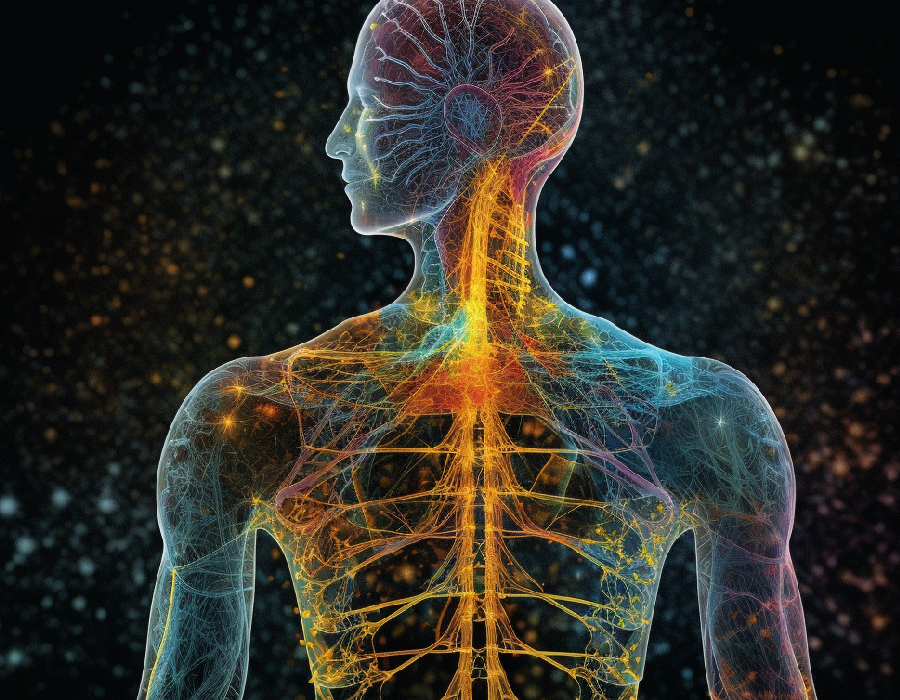
Current Research and Limitations
The Lack of Large-Scale Clinical Trials
Despite growing interest, there are no large-scale clinical trials proving that psychedelics directly treat autoimmune diseases.
Most of the available evidence is anecdotal or based on small pilot studies.
However, preliminary research suggests that psychedelics could play a role in immune regulation, and scientists are beginning to explore whether they could be used to “reset” immune system dysfunction.
The Need for More Scientific Exploration
Because psychedelics remain a controlled substance in many countries, research has been slow.
However, with increasing acceptance of psychedelic therapy for mental health, more studies are beginning to investigate their effects on physical conditions like chronic pain and inflammation.
Until large-scale trials are conducted, it’s difficult to say with certainty how effective psilocybin might be for autoimmune diseases.
Key Takeaways
Psychedelics, particularly psilocybin, may have anti-inflammatory and immune-modulating effects.
Some people with autoimmune conditions report symptom relief through microdosing, though research is still in its early stages.
While psychedelics alone are not a cure, they could offer an alternative pathway for symptom relief and overall well-being.
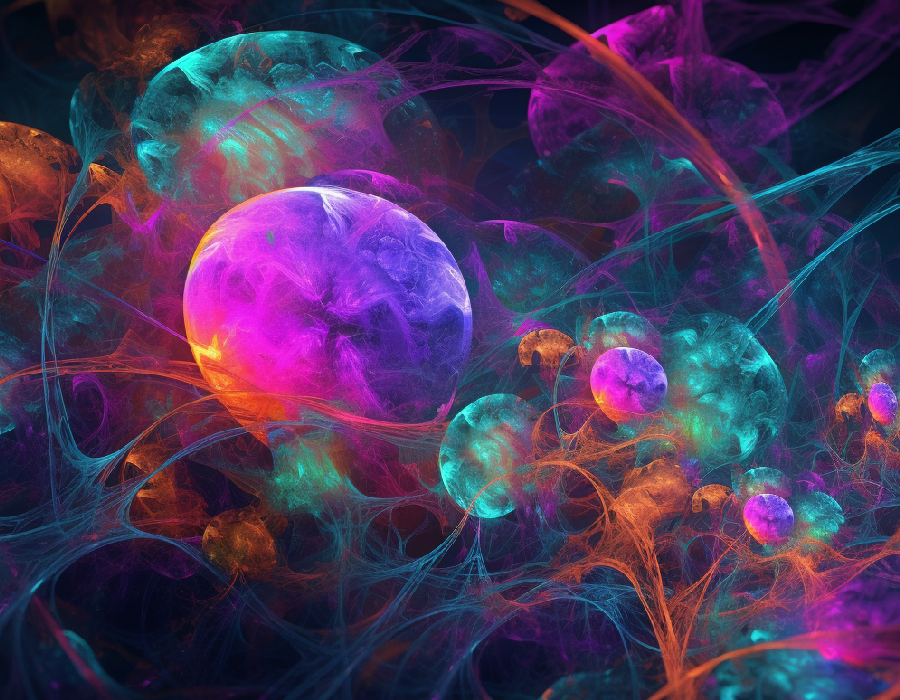
Unlock the Potential of Psychedelics with Magic Mush
Psychedelics like psilocybin are opening new doors in the realm of health and wellness, with promising potential for those struggling with autoimmune diseases.
While traditional treatments focus on suppressing the immune system, emerging research suggests that psilocybin could offer a different approach by modulating inflammation, reducing stress responses, and enhancing neuroplasticity.
Microdosing, in particular, has gained attention for its ability to provide subtle yet noticeable improvements in mood, pain levels, and overall well-being without the intensity of a full psychedelic trip.
Although clinical research is still in its early stages, many individuals report positive experiences, making this an exciting area of study.
While psychedelics are not a cure-all, they offer a fascinating intersection between mind-body healing and immune regulation.
The intricate relationship between stress, mental health, and autoimmune conditions suggests that psilocybin’s effects extend beyond just mood enhancement.
By helping to reset the nervous system and potentially influencing immune responses, psilocybin could revolutionize how we approach chronic illness.
As scientific exploration continues, more people are turning to alternative therapies to complement their existing treatments and improve their quality of life.
At Magic Mush, we believe in the transformative power of magic mushrooms and are dedicated to providing high-quality products for those looking to explore their therapeutic benefits.
Whether you’re interested in microdosing for symptom management or simply want to learn more about the potential of psychedelics, our team is here to offer expert guidance.
We prioritize safety, education, and responsible use, ensuring that you have access to rigorously tested, premium-grade mushrooms.
Our mission extends beyond just selling products—we are committed to destigmatizing psychedelic therapy and fostering a supportive community where individuals can explore psilocybin with confidence.
Through our extensive educational resources, blog posts, and dosing guides, we empower customers with knowledge so they can make informed decisions about their journey with psychedelics.
If you’re curious about microdosing or want to dive deeper into the world of psilocybin, Magic Mush is your trusted partner in this evolving space.
Join the movement and discover a world of possibilities with Magic Mush. Experience seamless online shopping, complete privacy, and exceptional customer support as you embark on your journey with magic mushrooms.
Visit our shop locations in California and Washington, or browse our online store to explore our wide range of premium psilocybin products.
Ready to take the next step?
